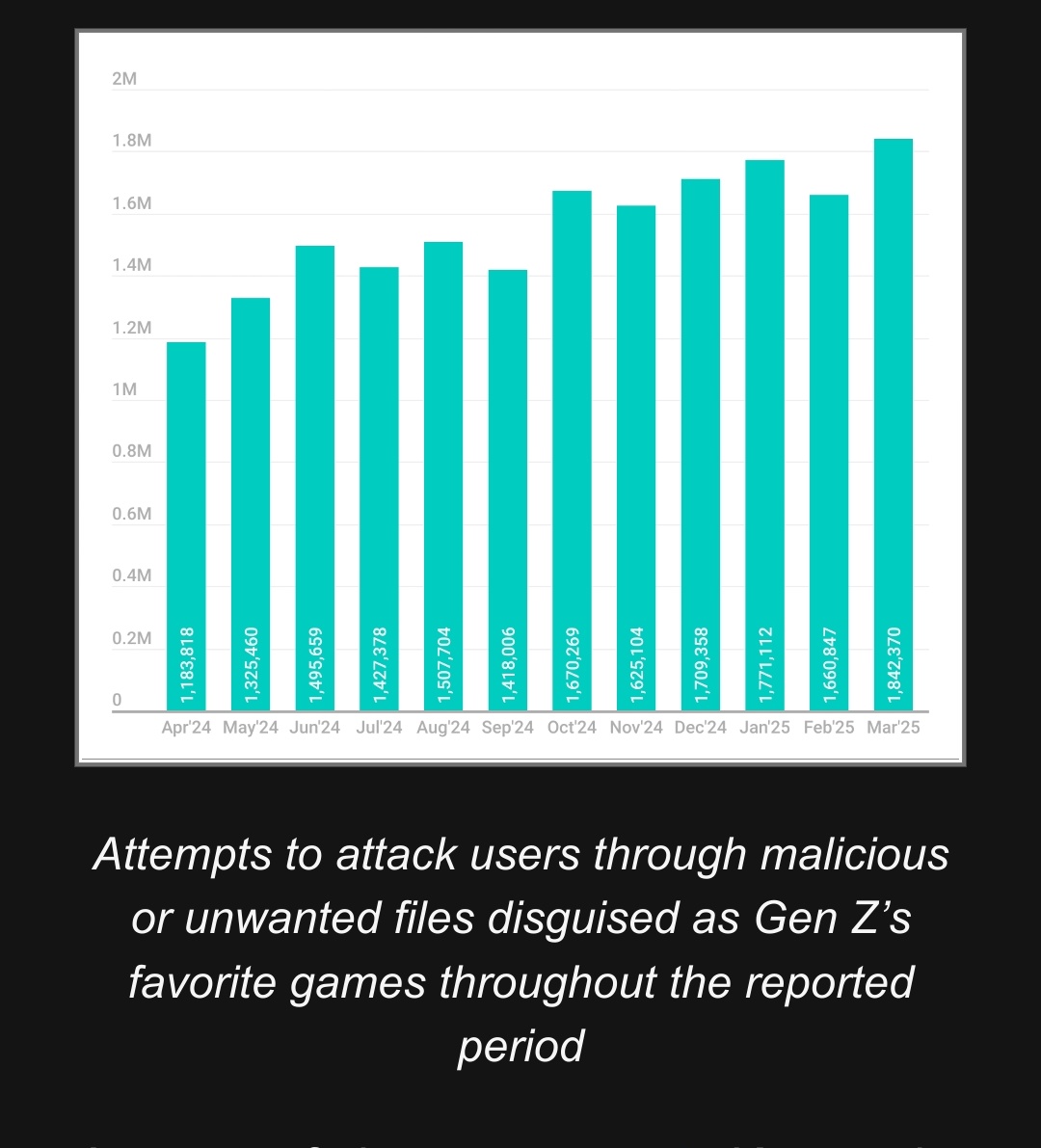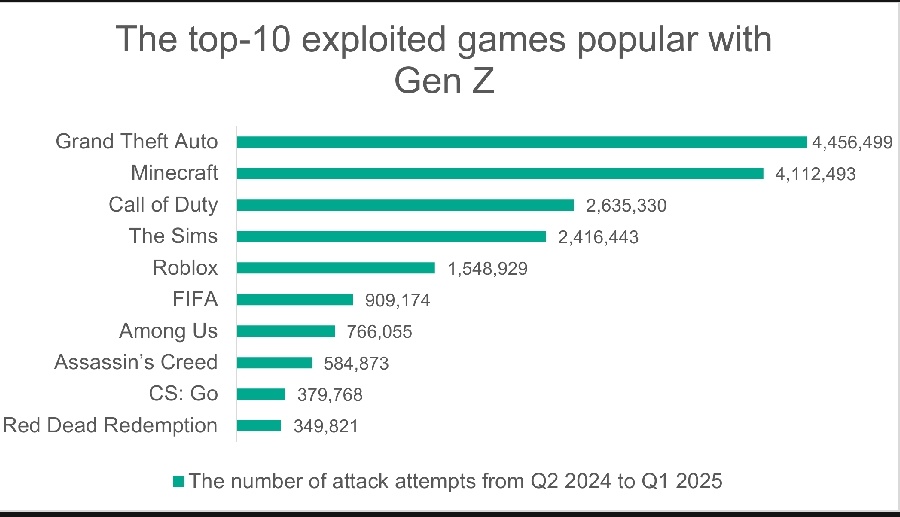Cybercriminals Target Gen Z Gamers in 19 Million Attack Attempts: Kaspersky Warns of Growing Threat

Cybercriminals are weaponizing Gen Z’s passion for gaming, using popular titles like GTA, Minecraft, and Call of Duty as bait in over 19 million attempted cyberattacks between April 2024 and March 2025, according to a new report by Kaspersky.
The cybersecurity firm uncovered a global surge in malicious or unwanted file downloads disguised as top Gen Z games, with more than 400,000 users worldwide affected. In Turkiye alone, over 47,800 attempts were recorded, placing it among the most impacted countries.
Kaspersky’s findings reveal a growing trend of cybercriminals exploiting gaming culture to reach digital-native players. The most frequently abused titles were those with large modding communities or viral appeal. GTA topped the list with 4.45 million attack attempts, followed by Minecraft (4.1 million), Call of Duty (2.6 million), and The Sims (2.4 million).
“Cybercriminals aren’t just following gaming trends — they’re embedding themselves in them,” said Fatih Sensoy, senior security researcher at Kaspersky. “They know Gen Z is constantly exploring new titles, downloading mods, and chasing limited-time content. That creates openings for phishing, malware, and credential theft.”
The report warns that malicious downloads can lead to serious consequences: from installing password-stealing trojans and ransomware, to granting remote access to attackers. One of the key motives is the theft of valuable gaming accounts and digital items, which are then sold on dark web marketplaces and increasingly on more visible platforms like Telegram and closed forums.
Gaming Accounts Become Easy Targets
Kaspersky researchers observed a sharp increase in the sale of compromised gaming accounts, particularly for games like Minecraft, and streaming services. The trade has moved beyond niche underground circles — now reaching users via encrypted messaging apps and private social channels, making these illicit markets more accessible than ever.
“Buying or selling hacked accounts used to require technical know-how. Now, it’s a few clicks away in a Telegram group,” Sensoy noted.
Kaspersky’s Response: Gamify Cybersecurity for Gen Z
In response, Kaspersky has launched “Case 404” — a free interactive cybersecurity game built specifically for Gen Z. Designed as a detective-style adventure, it immerses players in real-life-inspired cyberthreat scenarios, teaching them to spot phishing attempts, scams, and malware tactics commonly used in gaming communities.
“Learning digital self-defense should be as intuitive as leveling up in a game,” Sensoy added. “With Case 404, we’re not just raising awareness — we’re helping young players protect their digital identities, their accounts, and their freedom to play.”
Top Safety Tips for Gamers
To help players stay safe, Kaspersky recommends:
Download only from official sources – Avoid torrents and third-party links.
Be wary of giveaways – If it seems too good to be true, it probably is.
Use strong, unique passwords – Preferably managed through a password manager.
Enable 2FA – Especially on platforms like Steam, Epic Games, and Discord.
Check URLs carefully – Watch out for subtle typos or suspicious subdomains.
Don’t share accounts – Even with friends.
Use a trusted antivirus – Like Kaspersky Premium, to detect threats in real time.

